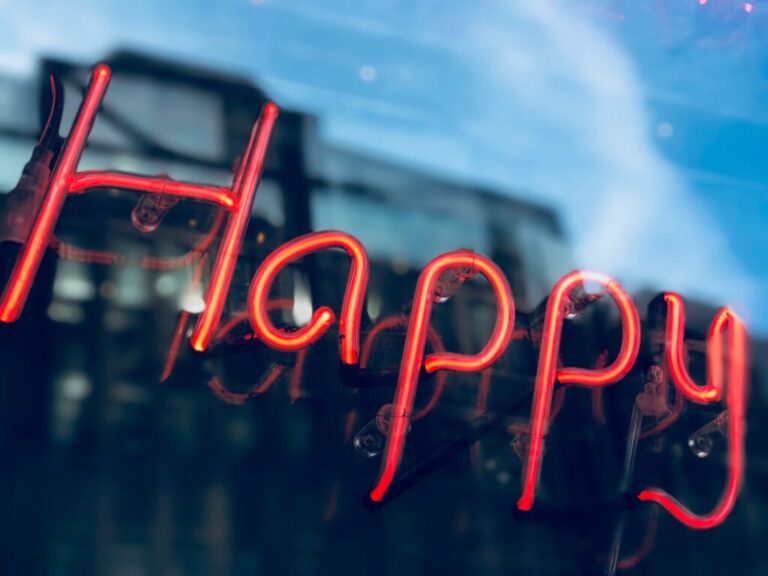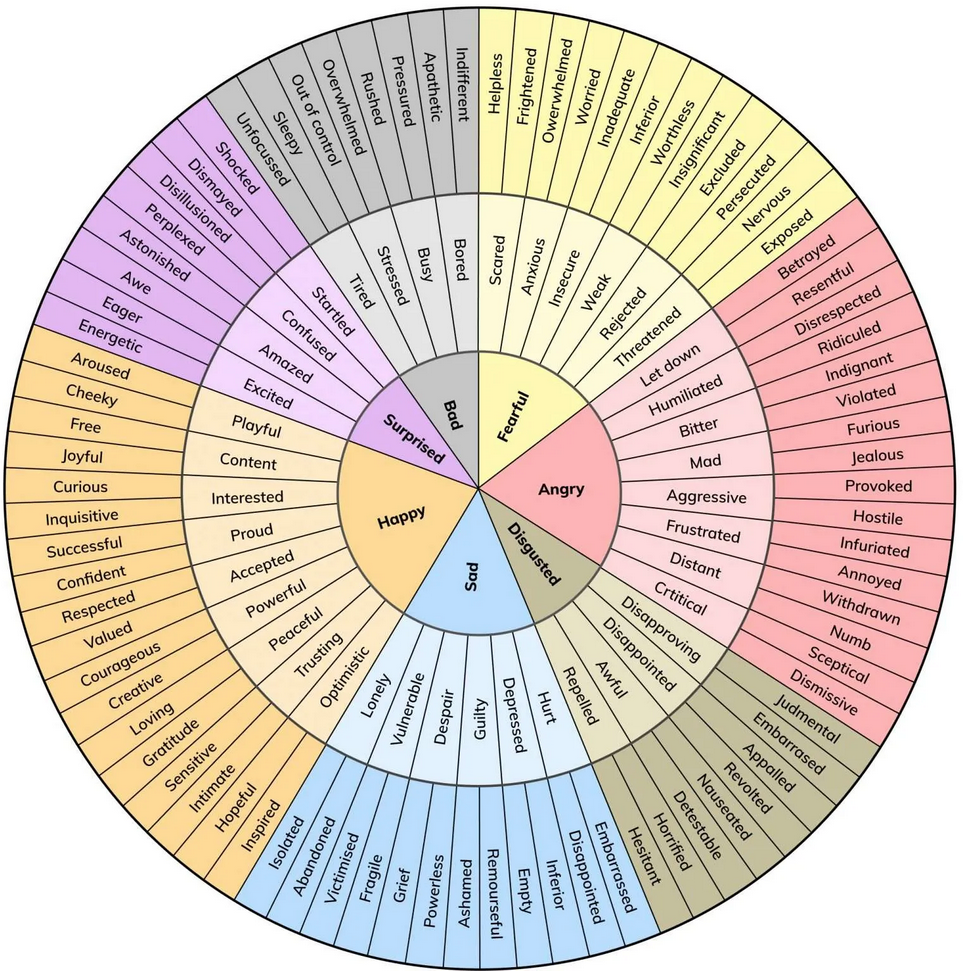Happiness is a tricky bag. Many people see it as a destination, while others understand it to be more about the journey. Research is out on who would be most accurate with their assessment. But there has been study into whether a pursuit of happiness at all other costs is truly worth it in the end. Apparently research in this regard suggests that those who are happiest often miss out on other life-affirming goal posts, like being a top earner, or having the highest grades. It is said that some sadness/distress actually acts as a motivator to get us to make changes and do more/better.
If we are always happy, we might not see what is missing in our life, or in the world at large. For example, if you simply strive for happiness, maybe you aren’t aware of the suffering

of others, and then don’t realize that you need to vote in a more caring government — profit at all costs is also not a great way to run a country and leaves many deserving citizens by the way-side. So if you don’t feel sadness and anger, because you’re always trying to be happy, then you can overlook some of the benefits of other emotions.
This is why I like the term “wholistic”. It is about looking at all the parts of the picture, mental, emotional, physical, spiritual, whatever fits in to make you and your world experiences. It’s okay to be sad sometimes, it’s okay to get angry especially at a system that might be failing you. It’s okay to not be happy all the time. Things like putting on a brave face in the wake of a traumatic experience can deny us the closure we need to move on. The whole range of emotions are there for the feeling!

This image (above) can give you some great words for what you might be feeling, and can help you stem those feelings back to their core emotions — for example, are you feeling withdrawn because you’re angry, or isolated because you’re sad. These are two very similar sounding emotions, but they come from two very different places. Learning to give voice and language to what we are feeling can help us accept that we don’t always need to be just happy.
When we are in pain physically, it might be a sign that we’re holding negative energy in our body. When we feel sadness and push it away, it often shows up somehow in the body, too. Our happiness cannot exist in a vacuum. If we ignore what else is happening, just to remain happy, we continue to deny ourselves the full spectrum of emotions and the full pictures of what we experience in life.
Emotions are often talked about in terms of negative (like anger or disgust) and positive (like happiness and surprise) … but I do not believe this to be the case — an emotion is just an emotion. We feel things when other things happen. It isn’t about what you’re FEELING that can be negative, it’s about what you DO with that feeling that can be positive or negative. If you feel remourseful and then you stuff that emotion, without getting to the underlying sadness, then this can be a negative way to interact with your emotion. But if you’re feeling betrayed and you use that energy to write a spoken word piece, whether it’s about how you’re feeling angry or something else entirely, you’ve taken the energy from that feeling and turned it into something positive, something creative.
Happiness is just one of the emotions on the wheel. It isn’t more important, or better, or the be-all and end-all of existing. Feeling the whole range of emotions that come with any given situation will help you feel more authentic and can motivate you towards bigger and better things in your life.
Are you horrified by the houseless population in your city? Is that because you cannot believe you live in a place that could possibly leave it’s most vulnerable population to their own defences, in the elements, with nothing? Maybe this will motivate you to get involved, to volunteer at a soup kitchen, or to go canvasing with your local political party, or something that can enact change on an institutional level. Without the emotions motivating you towards these actions, if you instead always felt happiness, you’d simply look away from this problem and never acknowledge that it needs people to help or it will never get fixed.

Happiness isn’t bad, in and of itself, of course it feels good to feel creative or loving or hopeful. It’s what we do with that emotion that lets us know if we’re on the right track. If we always feel bliss and just zone out, then we’re not likely reaching our full potential in any given situation. Constant happiness can be like living with blinders on. If you find yourself in this camp, striving for happiness at the cost of all else, reach out to me for a free 30 minute discovery call and lets talk about how you can get back on your path and relearn how to feel the full range of emotions.

